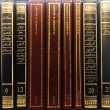The Promised Messiahas came to re-establish the relationship between man and his Creator. Prayer—Dua—is something that he continuously emphasised as the principal method of recognising God; moreover, he explained that it is the cornerstone of spiritual progress. However, there are many who do not believe in the efficacy of prayer; they have never seen or experienced their prayers being answered in a way which leaves no doubt that such and such was the direct result of a prayer.
The reasons not believing in the efficacy of prayer are manifold: there are those who, for whatever reason, don’t try and pray. Then there are those who, having made and effort and supplicated before God, have fallen silent on account of their prayers not being accepted. Finally, there are those who, perhaps on the odd occasion, witness their prayers being accepted but are not moved to believe that it was something out of the ordinary. In any case, the reader most certainly will know people who do not believe in the efficacy of prayer.
We have generally found that those who say that they pray but their prayers are never answered, can never really explain the concept of Dua [supplication] as it ought to be understood. It is when we read the writings and listen to the words of those who have a living connection with God Almighty that we begin to understand the mechanics of prayer. For instance in one place the Promised Messiahas states:
“If prayer did not exist, man would have no means by which to attain perfect certainty in cognisance of the Divine. It is through prayer that a person is blessed with revelation. It is through prayer that one engages in converse with God Almighty. With constant supplication, when man reaches the state of the inner-self being annihilated in God (fana) through belief in God’s Unity, and with love sincerity and purity, it is then that the Living God, Who is Hidden from the people, manifests Himself to such a one”
What’s interesting here is that the Promised Messiahas hasn’t stated anything on the acceptance of prayer—“If prayer did not exist…” not “If the acceptance of prayer did not exist”. And this is precisely where the most misconceptions arise. Prayer itself, the act of asking, is the means through which one can gain nearness to God Almighty. One need not wait for the prayer to be answered. But of course, if we make such a claim then we ought to justify as to how the mere act of asking can push one to the Divine threshold if there is no answer from God Almighty.
This too has been explained by the Promised Messiahas in a very clear way. In the book Ayyamus-Sulah the Promised Messiahas writes:
“Whoever supplicates to God at the time of a trial and difficulty and seeks the end to difficulties, if he perfects his prayer, gains tranquillity and true happiness from God Almighty. And even if he does not achieve the purpose of his prayer, some form of reassurance and tranquillity is bestowed upon him from God Almighty; he is never left with failure. Apart from such success his faith progresses and his certainity increases. However, the one who does not turn to God when praying, always remains blind and dies in such state. Those ignorant people have been sufficiently addressed in these words of ours who, owing to their misguided perception, allege that there are many to be found who despite annihilating themselves in prayer, by way of speech and condition, remain frustrated in their objectives and die in such a state. On the other hand, there is the individual who is neither convinced of prayer nor of God and attains a victory over those [who pray], and goes on to achieve great victories. As I have pointed out, the true purpose of prayer is to attain tranquillity, reassurance, and true happiness. It is not at all correct that we can only attain happiness in that matter which desire through prayer, rather that God who knows in what condition lies our true happiness, grants us that after complete prayer. It is not possible for the one who prays through the truth of his soul to remain unsatisfied. The happiness which can neither be achieved by wealth, nor through [power of] government, and neither through health, rather it is in the Hand of God—he bestows it in the manner he pleases—such [happiness] is granted through perfect supplication. If God Almighty desires, a loyal truthful individual—in the midst of a calamity—attains such pleasure after prayer, which an emperor cannot attain whilst seated on his throne. This is in other words is true satisfaction which is granted to those who pray.”
The Promised Messiahas explains that it is the act of prayer itself which we must perfect, for God Almighty is Omnipotent and knows better how to grant us that which we long for. Therefore, we ought to focus on improving our supplications, colouring them with heartfelt fervour, it is then that we can truly understand the effect supplication has.











